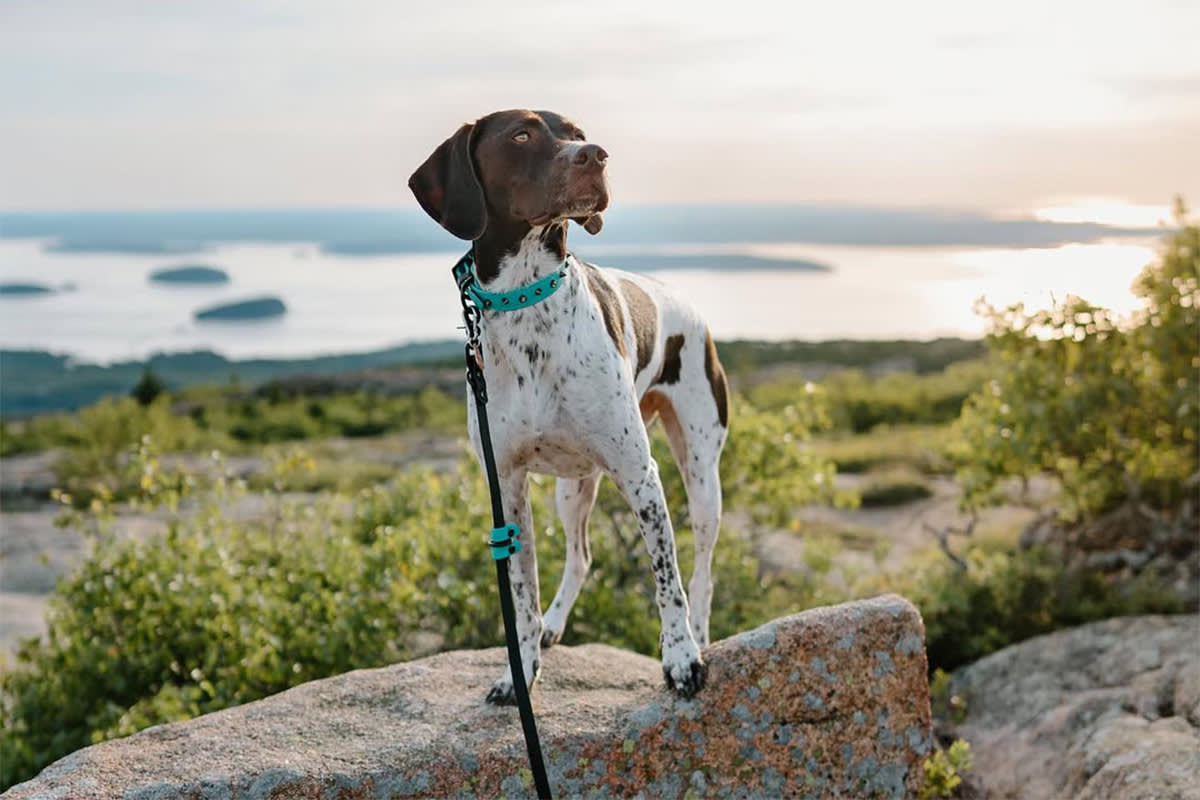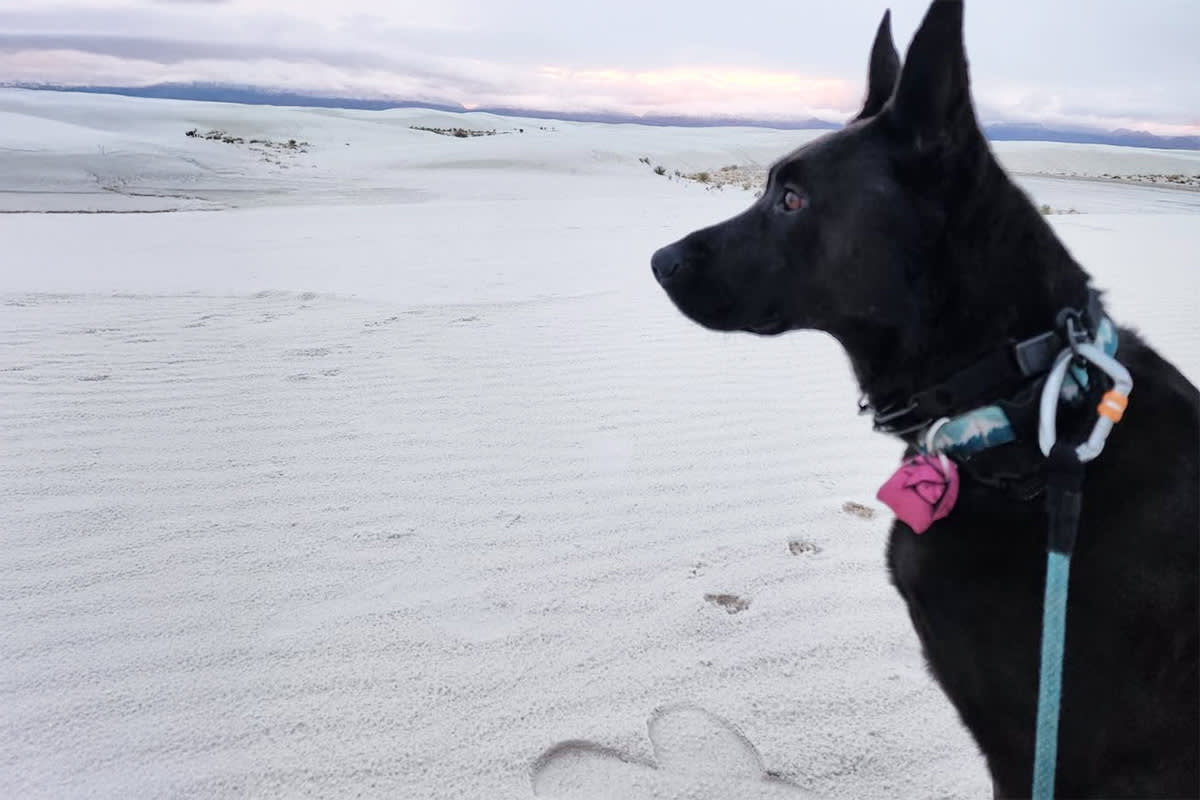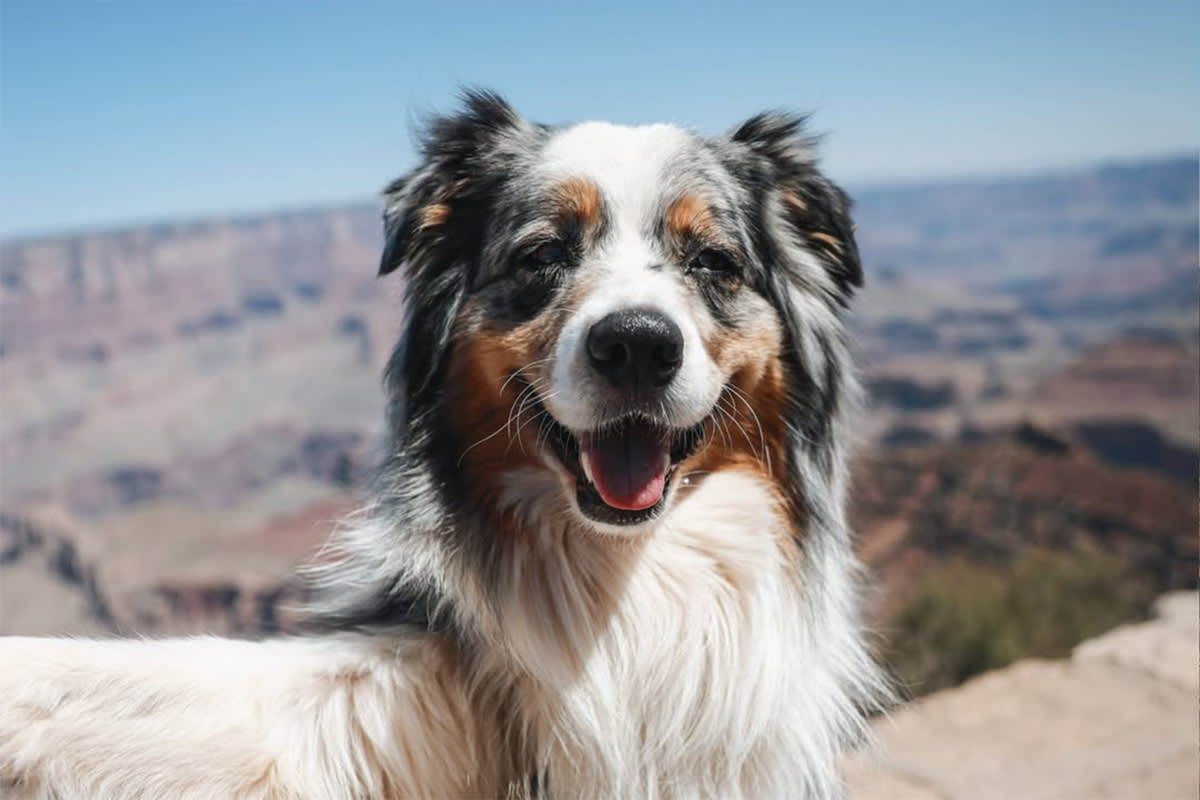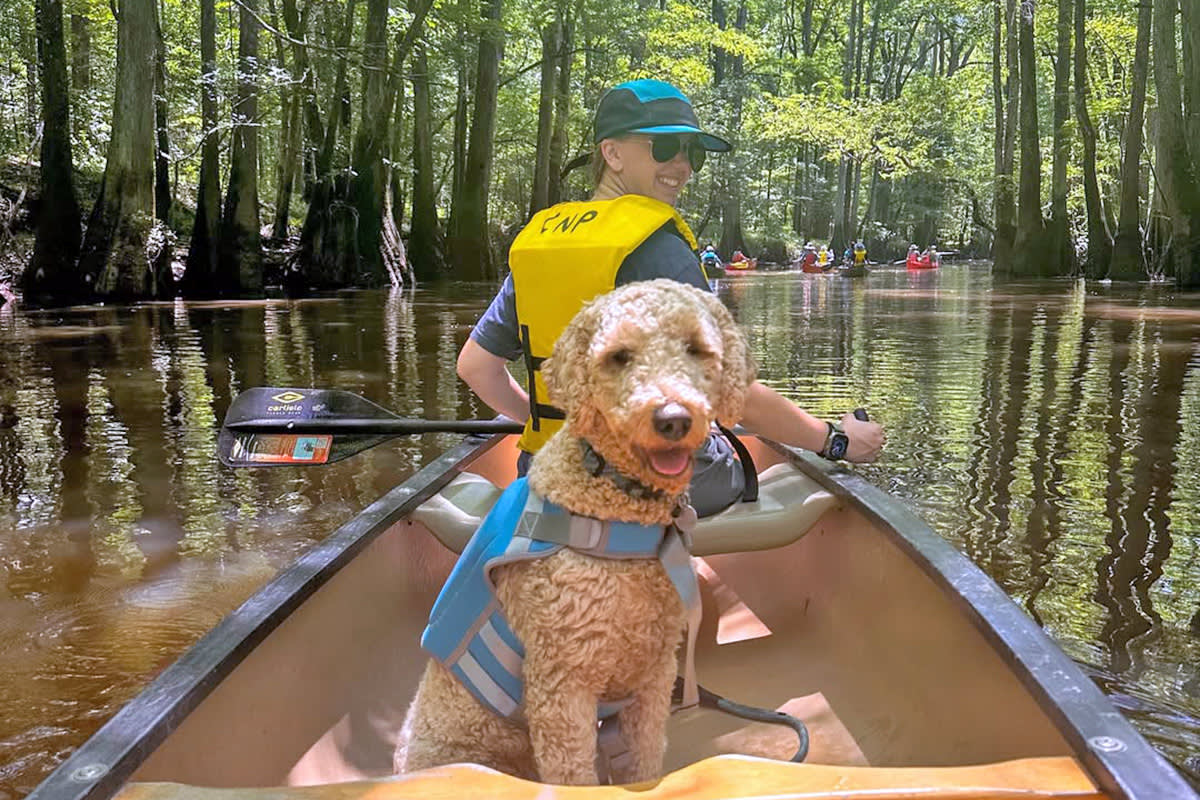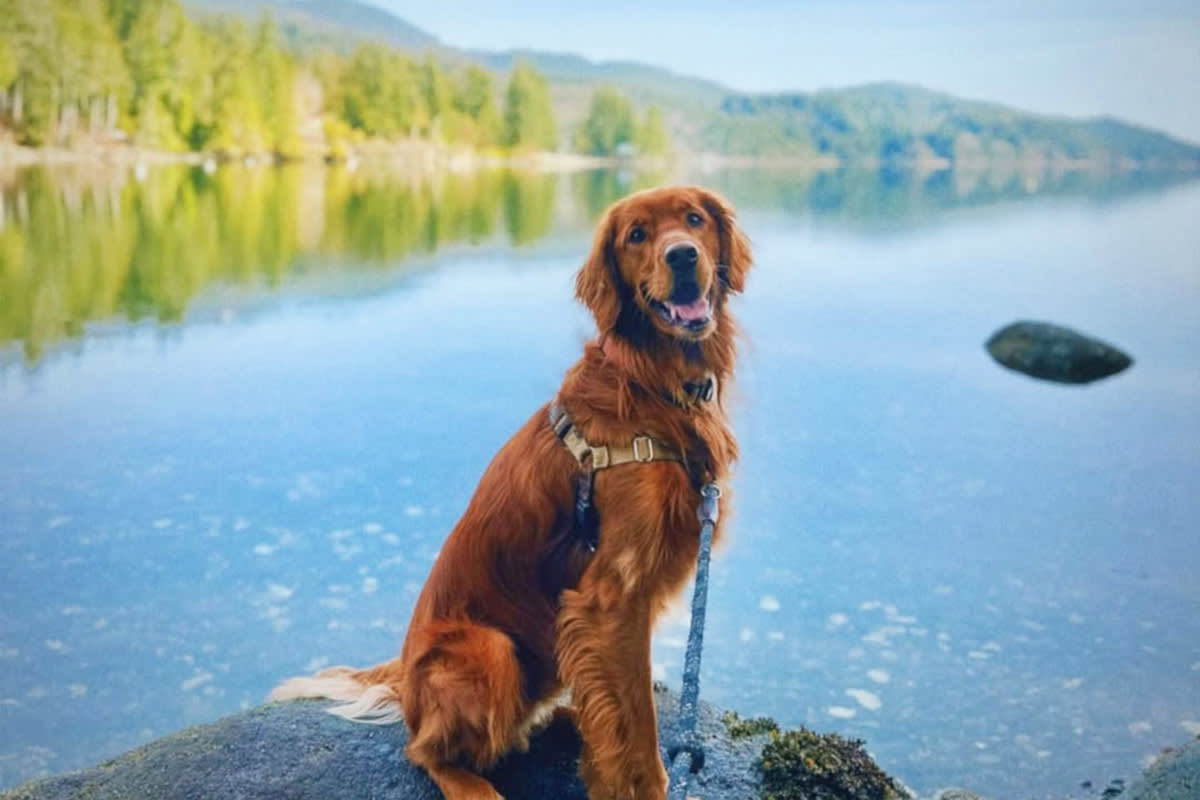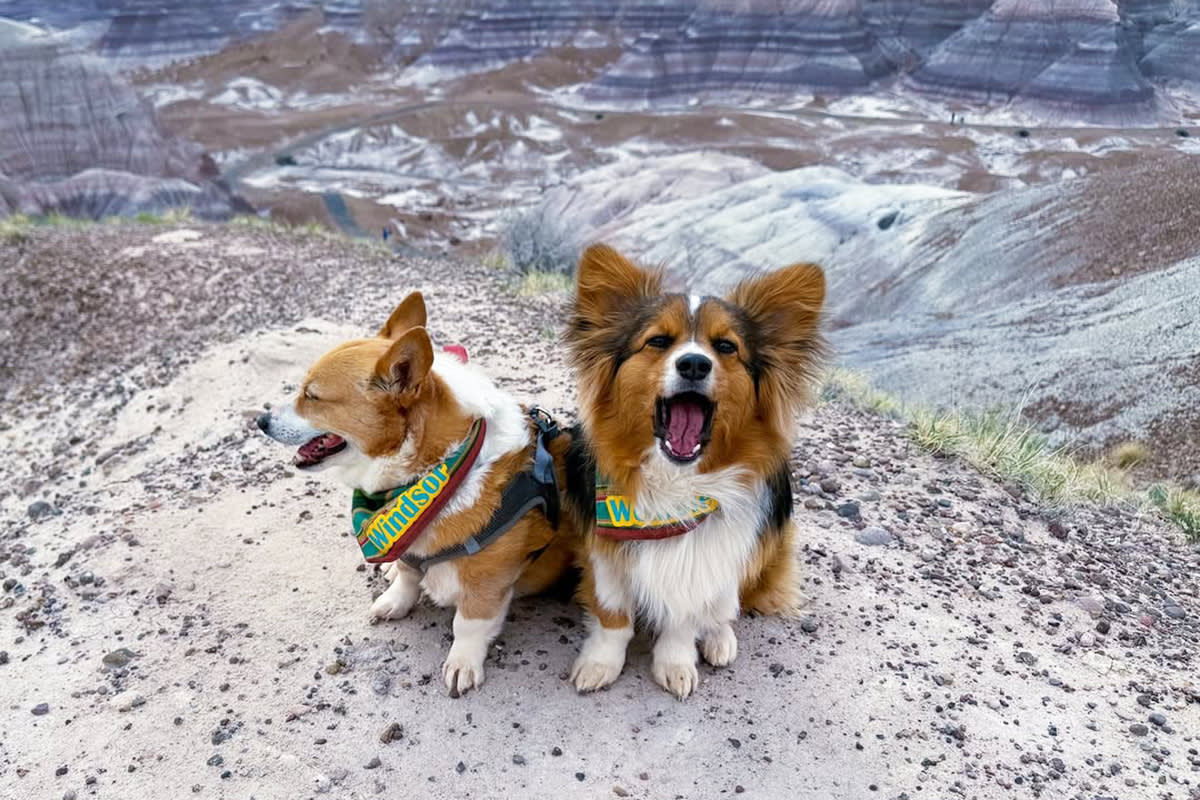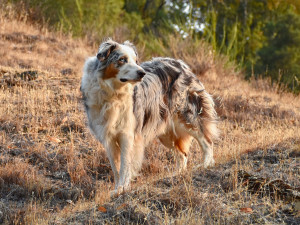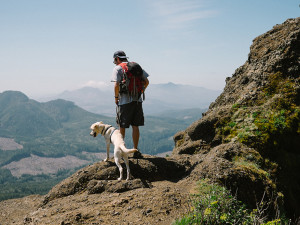The 10 Most Dog-Friendly National Parks You Should Visit This Summer
From Maine to Washington State, you can find hiking and camping adventures for the whole family.

Share Article
With summer fully underway, your dog is probably looking for a way to get outside sans loud noises and too many inescapable crowds. Enter America’s stunning and diverse national parks, many of which are the perfect summer vacation spot for you and your pup. Of course, some parks are better than others when it comes to our dogs, which is why we rounded up this list of the 10 most pup-friendly national parks.
No matter where you’re headed this summer and beyond, these parks have plenty of fun activities for pups and their parents. Need more convincing? Most of these parks also participate in the National Park Service (NPS)’s “Bark Ranger” program, which allows dogs to collect different “badges” and treats at participating parks. So, without further adieu, adventure awaits!
Acadia National Park, Maine
Bark Ranger participant.
Maine’s Acadia National Park often tops lists of pet-friendly national parks — and for good reason. The temperate Maine climate and varied trails are a doggie-hiker’s dream! Plus, with over 100 miles of dog-friendly hiking and carriage trails along Maine’s rugged coastline, neither you nor your pup will get bored of this northern wonder.

Together, you and your pup can explore the park’s historic carriage roads or take a ferry trip to Isle au Haut. At night, cozy up by the campfire in one of the park’s three dog-friendly campgrounds, open between May and October. Just make sure your pup doesn’t take in too much nature, specifically in the form of ticks (which are way worse this year all over the U.S.). The NPS advises that ticks are especially prevalent in Acadia between spring and fall, so be sure to protect yourself and your pup with bug spray and a vet-approved tick medication.
Pet-permitted areas include:
Carriage roads
Most hiking and walking trails
Blackwoods, Seawall, and Schoodic Woods campgrounds
Isle au Haut (daytime only)
Restricted- or no-pet areas include:
Most lakes
Sand Beach (June 15 to Sept 8) and Echo Lake (May 15 to Sept 15)
Public buildings
Ranger-led programs
Wild Gardens of Acadia (Sieur de Monts)
Duck Harbor Campground
The following trails: Precipice; Beehive; Ladder Trail to Dorr Mountain; Beech Cliffs Trail; Perpendicular Trail (Mansell Mountain); Jordan Cliffs Trail between Penobscot East Trail and the carriage road
New River Gorge National Park, West Virginia
Bark Ranger participant.
America’s newest national park, New River Gorge National Park, is quickly becoming a pet-parent favorite, thanks to its many dog-friendly areas and activities. Like Acadia, New River Gorge participates in the NPS’s Bark Ranger program. Unlike Acadia and most of the other parks on this list, all the trails at New River Gorge allow leashed dogs to hike alongside their parents.
Fitness-focused pups and their parents can enjoy rigorous hikes to overlooks and waterfalls like those located on the Endless Wall Trail or the Glade Creek Trail. Nature lovers who like more of a relaxed vibe can go on chill strolls through the historic mining buildings and towns that still stand protected within the park.
You and your pup can also camp together at any of the eight “primitive” campgrounds (i.e., no drinking water, no hookups, no electricity, and limited restroom facilities) located in New River Gorge. Alternatively, pups and people who prefer glamping to camping can book a pet-friendly cabinopens in new tab located directly in the gorge.
Pet-permitted areas include:
All trails and campsites
Restricted- or no-pet areas include:
Park buildings
Visitor centers
Ranger-led programs
White Sands National Park, New Mexico
Located in the stunning Chihuahuan Desert, White Sands National Park can be a unique and exciting place to visit with your pup. Dogs are allowed in the entire outdoor area of White Sands, allowing them to explore the unique dunes and trails located in the park. Spend the day sledding down the dunes or checking out fossilized footprints, all located within the world’s largest gypsum dunefield.
Keep in mind, as welcoming as White Sands is to dogs, it can also be a dangerous place for pups and people under certain conditions. Water is only available for purchase at one station, so ensure you have enough for you and your dog during the entirety of your visit. In addition, by midday, sands can reach temperatures not suitable for bare paws, so pet parents should consider early morning visits with their pet. Rattlesnakes are also present in the park, so pet parents should be on alert at all times. Camping with your pet is allowed; however, the campsites are currently closed.
Pet-permitted areas include:
All trails and campsites
Restricted- or no-pet areas include:
Park buildings
Visitor centers
Ranger-led programs
Shenandoah National Park, Virginia
Bark Ranger participant.
Shenandoah is one of those parks that has a little something for everyone, including your pup. There are around 46 trails in this green, shaded park, and you and your pup are welcome on all but 11 of them. Looking to add some food to your fitness? Big Meadow Lodge has a pet-friendly dining terrace attached to its two restaurants.
Speaking of lodges, two of Shenandoah’s in-park lodges offer pet-friendly rooms and accommodations. In addition to the two lodges, dogs are also allowed at Shenandoah’s five campsites. If you choose to camp with your dog, be aware that the area is known for its black bear population. While the bears are not likely to harm you or your pet, rangers are known to scare them away with paintball guns, the sound of which might be frightening to your pup.
Pet-permitted areas include:
Most trails and campsites
Restricted- or no-pet areas include:
Park buildings
Visitor centers
Ranger-led programs
The following trails: Fox Hollow Trail; Limberlost Trail; Post Office Junction to Old Rag Shelter; Old Rag Ridge Trail; Old Rag Saddle Trail; Ridge Access Trail (Old Rag area); Dark Hollow Falls Trail; Story of the Forest Trail; Bearfence Mountain Trail; Frazier Discovery Trail; Stony Man Trail (Note: the beginning portion of the route to the summit follows the Appalachian Trail where dogs are allowed, but you cannot make the turn onto the blue-blazed Stony Man Trail to the summit with a pet.)
Cuyahoga Valley National Park, Ohio
Bark Ranger participant.
Nestled along the banks of the Cuyahoga River, Cuyahoga Valley National Park welcomes all “domesticated pets,” including cats. Together, you and your pet can enjoy over 100 miles of trails that wind through stunning gorges and waterfalls connected to the river. And while no camping is allowed within Cuyahoga Valley National Park, the nearby Stow Silver Springs campground does allow camping with dogs (but not other “domesticated pets”).
Within the park, be aware that there are many ledge hiking areas within the woods. For this reason, pet parents should research the trail before hiking with their pet. In addition, ticks are prevalent in this wooded park, so ensure your dog, cat, or other “domesticated” pet is up to date on appropriate tick medication.
Pet-permitted areas include:
Most trails and other outdoor areas
Restricted- or no-pet areas include:
Park buildings
Visitor centers
Ranger-led programs
East Rim mountain bike trails
Pets are prohibited at Virginia Kendall Hills during sledding activities
Grand Canyon National Park, Arizona
Looking to check off a bucket list vacation with your pet by your side? Head to the Grand Canyon, where dogs are permitted to explore one of the world’s greatest natural wonders. Pet parents should note that pups are primarily allowed on the South Rim, with only one trail on the North Rim considered dog-friendly. Pets are not allowed below the canyon in any part of the park.
If pet parents wish to go into the canyon, the South Rim has a kennel for properly vaccinated dogs and cats. There are two pet-friendly campgrounds (Mather Campground and Desert View Campground) on the South Rim and one on the North Rim (Tuweep Campground). Yavapai Lodge is currently the only lodge in the park that allows pets in certain rooms.
In terms of safety, pet parents should be aware that the Grand Canyon and its trails can reach high temperatures, especially in the summer. If possible, plan for an early morning visit with your pet.
Pet-permitted areas include:
Above-the-rim trails (South Rim)
Mather Campground (South Rim)
Desert View Campground (South Rim)
Trailer Village (South Rim)
Tuweep Campground (North Rim)
Restricted- or no-pet areas include:
Park buildings
Visitor centers
Ranger-led programs
Below the rim of the Canyon (south and north)
Most North Rim trails; pets are permitted on part of bridle trail (greenway) that connects the North Kaibab Trail and the portion of the Arizona Trail north of the park entrance.
Congaree National Park, South Carolina
Bark Ranger participant.
Small, shady boardwalks connect the dog-friendly trails of this South Carolina floodplain park. Home to some of the tallest trees in the Eastern United States, Congaree National Park welcomes pups on all of its trails and campgrounds. Together, pets and their parents can explore this often-flooded forest on the boardwalk or in a canoe — just be sure to pack a well-fitted fitted life jacket for your pup!
Remember, while the boardwalk may seem like an easy enough stroll for any pup, this park’s unique ecosystem can often flood trails with very little notice. If you’re dog isn’t comfortable with water, this might not be the friendliest dog-friendly park on the list.
Pet-permitted areas include:
Most trails and campsites
Restricted- or no-pet areas include:
Park buildings
Visitor centers
Olympic National Park, Washington
Bark Ranger participant.
Olympic National Park contains multitudes: It features both the only rainforest in the continental U.S. and over 32 named glaciers. On top of that, this Washington State national park welcomes dogs on multiple trails throughout the park’s 900,000-plus acres of protected land. Dogs are also welcome to accompany their people on certain beaches and all drive-in campgrounds throughout the park. Multiple lodges within the park, including Kalaloch Lodge, Lake Crescent Lodge, and the Sol Duc Hot Springs Resort, all offer pet-friendly accommodations.
While enjoying this park with your pup, there are some unique safety precautions pet parents should keep in mind. The National Park Service warns against bringing pets onto tidal rocks, as the sharp stone can cause lacerations to paws and become infected. In addition, pet parents should be aware of aggressive tides, especially during the off-season.
Pet-permitted areas include:
Peabody Creek Trail (Olympic National Park Visitor Center in Port Angeles)
Rialto Beach parking lot to Ellen Creek (1/2 mile)
The beaches between the Hoh and Quinault Reservations (Kalaloch area)
Madison Falls Trail (Elwha)
Spruce Railroad Trail (north shore of Lake Crescent)
July Creek Loop Trail (north shore of Lake Quinault)
Restricted- or no-pet areas include:
All other trails
Park buildings
Visitor centers
Indiana Dunes National Park, Michigan
Bark Ranger participant.
Located on the southern shore of Lake Michigan, Indiana Dunes National Park welcomes both dogs and horses in certain areas of the park. Dogs are even allowed to swim, while still leashed. On dry land, dogs are welcome on most trails in the park and on the sandy dunes from which the park derives its name. Pets are also allowed on the trails outside of the many historic buildings located in the preserved areas. The park also contains one pet-friendly campground, however dogs are not allowed at the one lodge on-site.
Due to its location, however, there are certain things pet parents should know when bringing their pup to this national park. Because Lake Michigan is so large, the beaches can experience riptides similar to oceans, so make sure to stay aware of riptide notices posted throughout the park if you plan to swim with your dog. Pet parents should also note that the beaches are home to protected birds and wildlife. If your dog is particularly prey-driven, you might receive a ticket from rangers if they catch them going after any birds or wildlife.
Pet-permitted areas include:
All non-life guarded beaches
All trails except Glenwood Dune Trail and Pinhook Bog Trail
Campgrounds
Restricted or no-pet areas include:
West Beach: From Memorial Day through Labor Day, pets are prohibited on the beach within the lifeguarded area. Pets are permitted to walk through the lifeguarded area to reach the beaches on either side of the closure area.
Glenwood Dune Trail
Pinhook Bog Trail
Nature play areas
Park buildings
Visitor centers
Petrified Forest National Park, Arizona
Bark Ranger participant.
Arizona’s Petrified Forest Park, famous for its deposits of Triassic fossils, is a uniquely fun visit for pets and parents alike. To start, it’s a forest without any trees — because they died and fossilized millions of years ago. It’s the only park on the list with it’s own fenced-in dog park, where dogs can be off-leash and free to explore a small part of the park’s unique grounds. On leash, dogs are welcome on all trails, including favorites like Big Logs Trail, where you and your pup can observe (but not climb!) the park’s largest petrified trees.
There are no campgrounds located within Petrified Forest park, those wishing to camp with their dogs may do so backpacking style. That said, temperatures in the park can skyrocket early on in the day, so make sure to pack enough water and time your visit accordingly.
Pet-permitted areas include:
All trails and dog park
Restricted- or no-pet areas include:
Park buildings
Visitor centers

Rebecca Caplan
Rebecca Caplan is a writer based in Brooklyn whose work has been featured in The New Yorker, Reductress, and Vulture. She lives in Brooklyn with her perfect, toothless dog Moose.
Related articles
![Australian Shepherd on a hill during golden hour]()
How to Hike Safely With Your Dog This Summer
Time to get your gear—and your pup—ready to go.
![Two guys outside with their small dogs at a cafe.]()
The 10 Most Dog-Friendly Cities in the US to Take Your Pup This Summer
From sea to shining sea.
![Woman on the beach with her dog.]()
The 10 Best Dog-Friendly Hidden Gem Beaches in America
Visit these ideal vacation spots with your pup this summer.
![Woman holding her Corgi dog at a sports game outside.]()
All the Major League Baseball Games You Can Bring Your Dog to This Season
Plus, some pup-friendly soccer and football events, too.
![A woman holding a dog in her arms while looking at a scenic view of the sea.]()
5 Science-Backed Ways to De-Stress Outdoors (Your Pet Is Invited)
The author of Return to Nature on the mental health benefits of getting out into various natural landscapes with your pup.
![A man with a dog on a hike stoping to enjoy a beautiful overlook on a cliff.]()
How to Take Silly Little Mental Health Hikes With Your Dog
It’s good for you both — promise.
